 Go to A-Z Databases: Books & eBooks to search for more eBooks. Must be on campus or login with your COM account for off campus access.
Go to A-Z Databases: Books & eBooks to search for more eBooks. Must be on campus or login with your COM account for off campus access.
Want more on finding books or eBooks? Try our How to Use Books & eBooks guides.
-
 Unchained Voices: An Anthology of Black Authors in the English-Speaking World of the Eighteenth Century
In Unchained Voices, Vincent Carretta has assembled the most comprehensive anthology ever published of writings by eighteenth-century people of African descent, enabling many of these authors to be heard for the first time in two centuries. Their writings reflect the surprisingly diverse experiences of blacks on both sides of the Atlantic-America, Britain, the West Indies, and Africa-between 1760 and 1798. Letters, poems, captivity narratives, petitions, criminal autobiographies, economic treatises, travel accounts, and antislavery arguments were produced during a time of various and changing political and religious loyalties. Although the theme of liberation from physical or spiritual captivity runs throughout the collection, freedom also clearly led to hardship and disappointment for a number of these authors. Briton Hammon, James Albert Ukawsaw Gronniosaw, John Marrant, Ignatius Sancho, Ottobah Cugoano, and Olaudah Equiano told their stories as Afro-Britons who recognized the sovereignty of George III; Johnson Green, Belinda, Benjamin Banneker, and Venture Smith spoke and wrote as African Americans n the United States; Phillis Wheatley, initially an Afro-British poet, later chose an African American identity; Francis Williams and George Liele wrote in Jamaica; David George and Boston King, having served with the British forces in the American Revolution and later lived in Canada, composed their narratives as British subjects in the newly established settlement in Sierra Leone, Africa. In his introduction, Carretta reconstructs the historical and cultural context of the works, emphasizing the constraints of the eighteenth-century genres under which these authors wrote. The texts and annotations are based on extensive research in both published and manuscript holdings of archives in the United States and the United Kingdom. Appropriate for undergraduates as well as for scholars, Unchained Voices gives a clear sense of the major literary and cultural issues at the heart of African literature written in English.
Unchained Voices: An Anthology of Black Authors in the English-Speaking World of the Eighteenth Century
In Unchained Voices, Vincent Carretta has assembled the most comprehensive anthology ever published of writings by eighteenth-century people of African descent, enabling many of these authors to be heard for the first time in two centuries. Their writings reflect the surprisingly diverse experiences of blacks on both sides of the Atlantic-America, Britain, the West Indies, and Africa-between 1760 and 1798. Letters, poems, captivity narratives, petitions, criminal autobiographies, economic treatises, travel accounts, and antislavery arguments were produced during a time of various and changing political and religious loyalties. Although the theme of liberation from physical or spiritual captivity runs throughout the collection, freedom also clearly led to hardship and disappointment for a number of these authors. Briton Hammon, James Albert Ukawsaw Gronniosaw, John Marrant, Ignatius Sancho, Ottobah Cugoano, and Olaudah Equiano told their stories as Afro-Britons who recognized the sovereignty of George III; Johnson Green, Belinda, Benjamin Banneker, and Venture Smith spoke and wrote as African Americans n the United States; Phillis Wheatley, initially an Afro-British poet, later chose an African American identity; Francis Williams and George Liele wrote in Jamaica; David George and Boston King, having served with the British forces in the American Revolution and later lived in Canada, composed their narratives as British subjects in the newly established settlement in Sierra Leone, Africa. In his introduction, Carretta reconstructs the historical and cultural context of the works, emphasizing the constraints of the eighteenth-century genres under which these authors wrote. The texts and annotations are based on extensive research in both published and manuscript holdings of archives in the United States and the United Kingdom. Appropriate for undergraduates as well as for scholars, Unchained Voices gives a clear sense of the major literary and cultural issues at the heart of African literature written in English.
-
-
 Call Us What We Carry
by
Amanda Gorman
The instant #1 New York Times, Wall Street Journal, and USA Today bestseller The breakout poetry collection by #1 New York Times bestselling author and presidential inaugural poet Amanda Gorman Formerly titled The Hill We Climb and Other Poems, the luminous poetry collection by #1 New York Times bestselling author and presidential inaugural poet Amanda Gorman captures a shipwrecked moment in time and transforms it into a lyric of hope and healing. In Call Us What We Carry, Gorman explores history, language, identity, and erasure through an imaginative and intimate collage. Harnessing the collective grief of a global pandemic, this beautifully designed volume features poems in many inventive styles and structures and shines a light on a moment of reckoning. Call Us What We Carry reveals that Gorman has become our messenger from the past, our voice for the future.
Call Us What We Carry
by
Amanda Gorman
The instant #1 New York Times, Wall Street Journal, and USA Today bestseller The breakout poetry collection by #1 New York Times bestselling author and presidential inaugural poet Amanda Gorman Formerly titled The Hill We Climb and Other Poems, the luminous poetry collection by #1 New York Times bestselling author and presidential inaugural poet Amanda Gorman captures a shipwrecked moment in time and transforms it into a lyric of hope and healing. In Call Us What We Carry, Gorman explores history, language, identity, and erasure through an imaginative and intimate collage. Harnessing the collective grief of a global pandemic, this beautifully designed volume features poems in many inventive styles and structures and shines a light on a moment of reckoning. Call Us What We Carry reveals that Gorman has become our messenger from the past, our voice for the future.
Also available in print: PS3607.O59774 A6 2021
-
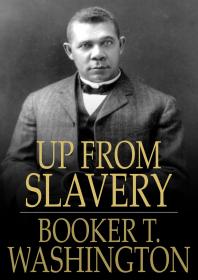 Up from Slavery
by
Booker T. Washington
Delve into the turbulent roots of race relations in the United States with this inspirational account from Booker T. Washington, a one-time slave who became an important advocate for African-American education and founded several well-known institutions of higher learning, including the Tuskegee Institute in Alabama. Up From Slavery details Washington's life and outlines his sometimes-controversial views on education, social justice, and racial equality.
Up from Slavery
by
Booker T. Washington
Delve into the turbulent roots of race relations in the United States with this inspirational account from Booker T. Washington, a one-time slave who became an important advocate for African-American education and founded several well-known institutions of higher learning, including the Tuskegee Institute in Alabama. Up From Slavery details Washington's life and outlines his sometimes-controversial views on education, social justice, and racial equality.
-
 Americanah
by
Chimamanda Ngozi Adichie
The bestselling novel--a love story of race and identity--from the award-winning author of We Should All Be Feminists and Dear Ijeawele. Nominated as one of America's best-loved novels by PBS's The Great American Read Ifemelu and Obinze are young and in love when they depart military-ruled Nigeria for the West. Beautiful, self-assured Ifemelu heads for America, where despite her academic success, she is forced to grapple with what it means to be black for the first time. Quiet, thoughtful Obinze had hoped to join her, but with post-9/11 America closed to him, he instead plunges into a dangerous, undocumented life in London. Fifteen years later, they reunite in a newly democratic Nigeria, and reignite their passion--for each other and for their homeland.
Americanah
by
Chimamanda Ngozi Adichie
The bestselling novel--a love story of race and identity--from the award-winning author of We Should All Be Feminists and Dear Ijeawele. Nominated as one of America's best-loved novels by PBS's The Great American Read Ifemelu and Obinze are young and in love when they depart military-ruled Nigeria for the West. Beautiful, self-assured Ifemelu heads for America, where despite her academic success, she is forced to grapple with what it means to be black for the first time. Quiet, thoughtful Obinze had hoped to join her, but with post-9/11 America closed to him, he instead plunges into a dangerous, undocumented life in London. Fifteen years later, they reunite in a newly democratic Nigeria, and reignite their passion--for each other and for their homeland.
-
 Things Fall Apart
by
Chinua Achebe
Things Fall Apart is the first of three novels in Chinua Achebe's critically acclaimed African Trilogy. It is a classic narrative about Africa's cataclysmic encounter with Europe as it establishes a colonial presence on the continent. Told through the fictional experiences of Okonkwo, a wealthy and fearless Igbo warrior of Umuofia in the late 1800s, Things Fall Apart explores one man's futile resistance to the devaluing of his Igbo traditions by British political andreligious forces and his despair as his community capitulates to the powerful new order.
Things Fall Apart
by
Chinua Achebe
Things Fall Apart is the first of three novels in Chinua Achebe's critically acclaimed African Trilogy. It is a classic narrative about Africa's cataclysmic encounter with Europe as it establishes a colonial presence on the continent. Told through the fictional experiences of Okonkwo, a wealthy and fearless Igbo warrior of Umuofia in the late 1800s, Things Fall Apart explores one man's futile resistance to the devaluing of his Igbo traditions by British political andreligious forces and his despair as his community capitulates to the powerful new order.
-
 Home to Harlem
by
Claude McKay
With sensual, often brutal accuracy, Claude McKay traces the parallel paths of two very different young men struggling to find their way through the suspicion and prejudice of American society. At the same time, this stark but moving story touches on the central themes of the Harlem Renaissance, including the urgent need for unity and identity among blacks.
Home to Harlem
by
Claude McKay
With sensual, often brutal accuracy, Claude McKay traces the parallel paths of two very different young men struggling to find their way through the suspicion and prejudice of American society. At the same time, this stark but moving story touches on the central themes of the Harlem Renaissance, including the urgent need for unity and identity among blacks.
-
 The Underground Railroad
by
Colson Whitehead
From prize-winning, bestselling author Colson Whitehead, a magnificent tour de force chronicling a young slave's adventures as she makes a desperate bid for freedom in the antebellum South Cora is a slave on a cotton plantation in Georgia. Life is hell for all the slaves, but especially bad for Cora; an outcast even among her fellow Africans, she is coming into womanhood--where even greater pain awaits. When Caesar, a recent arrival from Virginia, tells her about the Underground Railroad, they decide to take a terrifying risk and escape. Matters do not go as planned--Cora kills a young white boy who tries to capture her. Though they manage to find a station and head north, they are being hunted. In Whitehead's ingenious conception, the Underground Railroad is no mere metaphor--engineers and conductors operate a secret network of tracks and tunnels beneath the Southern soil. Cora and Caesar's first stop is South Carolina, in a city that initially seems like a haven. But the city's placid surface masks an insidious scheme designed for its black denizens. And even worse: Ridgeway, the relentless slave catcher, is close on their heels. Forced to flee again, Cora embarks on a harrowing flight, state by state, seeking true freedom. Like the protagonist of Gulliver's Travels, Cora encounters different worlds at each stage of her journey--hers is an odyssey through time as well as space. As Whitehead brilliantly re-creates the unique terrors for black people in the pre-Civil War era, his narrative seamlessly weaves the saga of America from the brutal importation of Africans to the unfulfilled promises of the present day. The Underground Railroad is at once a kinetic adventure tale of one woman's ferocious will to escape the horrors of bondage and a shattering, powerful meditation on the history we all share.
The Underground Railroad
by
Colson Whitehead
From prize-winning, bestselling author Colson Whitehead, a magnificent tour de force chronicling a young slave's adventures as she makes a desperate bid for freedom in the antebellum South Cora is a slave on a cotton plantation in Georgia. Life is hell for all the slaves, but especially bad for Cora; an outcast even among her fellow Africans, she is coming into womanhood--where even greater pain awaits. When Caesar, a recent arrival from Virginia, tells her about the Underground Railroad, they decide to take a terrifying risk and escape. Matters do not go as planned--Cora kills a young white boy who tries to capture her. Though they manage to find a station and head north, they are being hunted. In Whitehead's ingenious conception, the Underground Railroad is no mere metaphor--engineers and conductors operate a secret network of tracks and tunnels beneath the Southern soil. Cora and Caesar's first stop is South Carolina, in a city that initially seems like a haven. But the city's placid surface masks an insidious scheme designed for its black denizens. And even worse: Ridgeway, the relentless slave catcher, is close on their heels. Forced to flee again, Cora embarks on a harrowing flight, state by state, seeking true freedom. Like the protagonist of Gulliver's Travels, Cora encounters different worlds at each stage of her journey--hers is an odyssey through time as well as space. As Whitehead brilliantly re-creates the unique terrors for black people in the pre-Civil War era, his narrative seamlessly weaves the saga of America from the brutal importation of Africans to the unfulfilled promises of the present day. The Underground Railroad is at once a kinetic adventure tale of one woman's ferocious will to escape the horrors of bondage and a shattering, powerful meditation on the history we all share.
-
 Harlem Shuffle
by
Colson Whitehead
"Ray Carney was only slightly bent when it came to being crooked..." To his customers and neighbors on 125th street, Carney is an upstanding salesman of reasonably priced furniture, making a decent life for himself and his family. He and his wife Elizabeth are expecting their second child, and if her parents on Striver's Row don't approve of him or their cramped apartment across from the subway tracks, it's still home.
Few people know he descends from a line of uptown hoods and crooks, and that his façade of normalcy has more than a few cracks in it. Cracks that are getting bigger all the time.
Harlem Shuffle
by
Colson Whitehead
"Ray Carney was only slightly bent when it came to being crooked..." To his customers and neighbors on 125th street, Carney is an upstanding salesman of reasonably priced furniture, making a decent life for himself and his family. He and his wife Elizabeth are expecting their second child, and if her parents on Striver's Row don't approve of him or their cramped apartment across from the subway tracks, it's still home.
Few people know he descends from a line of uptown hoods and crooks, and that his façade of normalcy has more than a few cracks in it. Cracks that are getting bigger all the time.
-
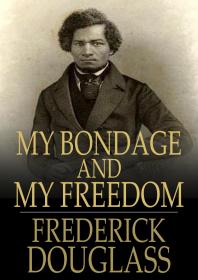 My Bondage and My Freedom
by
Frederick Douglass
The second in the series of three autobiographies penned by Frederick Douglass, My Bondage and My Freedom picks up where Narrative of the Life of Frederick Douglass left off. This volume recounts more gripping details of Douglass' transformation from illiterate slave to leading light of the abolitionist movement and offers an extended philosophical meditation on the meaning of slavery.
My Bondage and My Freedom
by
Frederick Douglass
The second in the series of three autobiographies penned by Frederick Douglass, My Bondage and My Freedom picks up where Narrative of the Life of Frederick Douglass left off. This volume recounts more gripping details of Douglass' transformation from illiterate slave to leading light of the abolitionist movement and offers an extended philosophical meditation on the meaning of slavery.
-
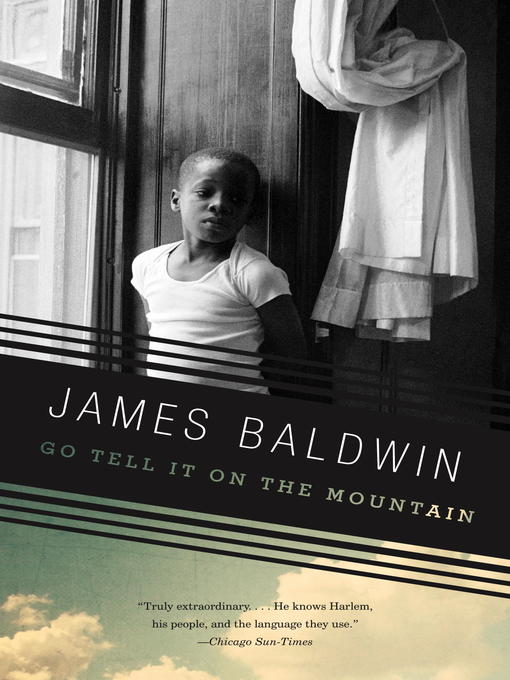 Go Tell It on the Mountain
by
James Baldwin
"Mountain," Baldwin said, "is the book I had to write if I was ever going to write anything else." Go Tell It On The Mountain, first published in 1953, is Baldwin's first major work, a novel that has established itself as an American classic. With lyrical precision, psychological directness, resonating symbolic power, and a rage that is at once unrelenting and compassionate, Baldwin chronicles a fourteen-year-old boy's discovery of the terms of his identity as the stepson of the minister of a storefront Pentecostal church in Harlem one Saturday in March of 1935.
Go Tell It on the Mountain
by
James Baldwin
"Mountain," Baldwin said, "is the book I had to write if I was ever going to write anything else." Go Tell It On The Mountain, first published in 1953, is Baldwin's first major work, a novel that has established itself as an American classic. With lyrical precision, psychological directness, resonating symbolic power, and a rage that is at once unrelenting and compassionate, Baldwin chronicles a fourteen-year-old boy's discovery of the terms of his identity as the stepson of the minister of a storefront Pentecostal church in Harlem one Saturday in March of 1935.
-
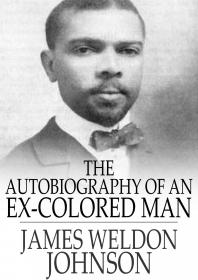 The Autobiography of an Ex-Colored Man
by
James Weldon Johnson
James Weldon Johnson's The Autobiography of an Ex-Colored Man is the fictional account of the life of a young American man in the late nineteenth and early twentieth century. With his bi-racial heritage, the Ex-Colored Man is faced with the choice of embracing his black culture and its ragtime music, or passing as a white man and living a mediocre middle-class existence. While not actually an autobiography, Johnson based the book on his own life and the lives of people he knew.
The Autobiography of an Ex-Colored Man
by
James Weldon Johnson
James Weldon Johnson's The Autobiography of an Ex-Colored Man is the fictional account of the life of a young American man in the late nineteenth and early twentieth century. With his bi-racial heritage, the Ex-Colored Man is faced with the choice of embracing his black culture and its ragtime music, or passing as a white man and living a mediocre middle-class existence. While not actually an autobiography, Johnson based the book on his own life and the lives of people he knew.
-
 Fight for Freedom and Other Writings on Civil Rights
by
Langston Hughes
Nearing the end of a distinguished literary career that spanned nearly fifty years, Langston Hughes took on the daunting task of writing the official history of the national Association for the Advancement of Colored People (NAACP). Beginning with the social, political, and economic contexts that led to the founding of the NAACP in 1909 and ending with a summary of its targeted goals for 1963, Hughes attempted to write a history that would be comprehensive in scope and singular in its purpose of highlighting the ways in which the Association had a direct and positive influence on racial justice in the United States. Focusing on the individuals who had the greatest impact on the NAACP and the issues with which the organization was most concerned in its first fifty years of existence, Hughes produced the widely acclaimed Fight for Freedom, striking an exceptional balance between biography and cultural history. Long before the publication of Fight for Freedom, Hughes had begun writing nonfictional prose about these same issues as a regular columnist and essayist for the nation's most influential African American publications, including the Chicago Defender and Crisis. A selection of these popular columns and other essays--which reveal the extent to which Hughes's unique, varied, and sometimes Blues- tinged narrative voice shifted in tone over the course of his extensive career--is included in this volume. Hughes intersperses historical facts with compelling anecdotes that often frame subtly ironic commentaries on various themes. The result is history that provides a lens through which to view Hughes's attitudes in the early 1960s toward the ways the NAACP addressed the vital social, cultural, political, and economic issues central to its agenda. Fight for Freedom and Other Writings on Civil Rights makes a unique contribution to the oeuvre of an African American writer whose full significance to American literature, history, and culture will continue to be defined well into the twenty-first century.
Fight for Freedom and Other Writings on Civil Rights
by
Langston Hughes
Nearing the end of a distinguished literary career that spanned nearly fifty years, Langston Hughes took on the daunting task of writing the official history of the national Association for the Advancement of Colored People (NAACP). Beginning with the social, political, and economic contexts that led to the founding of the NAACP in 1909 and ending with a summary of its targeted goals for 1963, Hughes attempted to write a history that would be comprehensive in scope and singular in its purpose of highlighting the ways in which the Association had a direct and positive influence on racial justice in the United States. Focusing on the individuals who had the greatest impact on the NAACP and the issues with which the organization was most concerned in its first fifty years of existence, Hughes produced the widely acclaimed Fight for Freedom, striking an exceptional balance between biography and cultural history. Long before the publication of Fight for Freedom, Hughes had begun writing nonfictional prose about these same issues as a regular columnist and essayist for the nation's most influential African American publications, including the Chicago Defender and Crisis. A selection of these popular columns and other essays--which reveal the extent to which Hughes's unique, varied, and sometimes Blues- tinged narrative voice shifted in tone over the course of his extensive career--is included in this volume. Hughes intersperses historical facts with compelling anecdotes that often frame subtly ironic commentaries on various themes. The result is history that provides a lens through which to view Hughes's attitudes in the early 1960s toward the ways the NAACP addressed the vital social, cultural, political, and economic issues central to its agenda. Fight for Freedom and Other Writings on Civil Rights makes a unique contribution to the oeuvre of an African American writer whose full significance to American literature, history, and culture will continue to be defined well into the twenty-first century.
-
 The Ways of White Folks
by
Langston Hughes
In these acrid and poignant stories, Hughes depicted black people colliding--sometimes humorously, more often tragically--with whites in the 1920s and '30s. From the Trade Paperback edition.
The Ways of White Folks
by
Langston Hughes
In these acrid and poignant stories, Hughes depicted black people colliding--sometimes humorously, more often tragically--with whites in the 1920s and '30s. From the Trade Paperback edition.
-
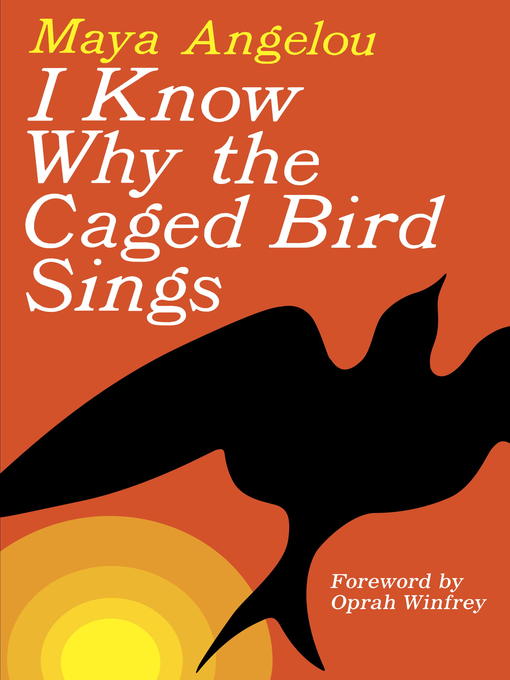 I Know Why the Caged Bird Sings
by
Maya Angelou
Here is a book as joyous and painful, as mysterious and memorable, as childhood itself. I Know Why the Caged Bird Sings captures the longing of lonely children, the brute insult of bigotry, and the wonder of words that can make the world right. Maya Angelou's debut memoir is a modern American classic beloved worldwide.
I Know Why the Caged Bird Sings
by
Maya Angelou
Here is a book as joyous and painful, as mysterious and memorable, as childhood itself. I Know Why the Caged Bird Sings captures the longing of lonely children, the brute insult of bigotry, and the wonder of words that can make the world right. Maya Angelou's debut memoir is a modern American classic beloved worldwide.
-
 Kindred
by
Octavia Butler
Dana’s torment begins when she suddenly vanishes on her 26th birthday from California, 1976, and is dragged through time to antebellum Maryland to rescue a boy named Rufus, heir to a slaveowner’s plantation. She soon realizes the purpose of her summons to the past: protect Rufus to ensure his assault of her Black ancestor so that she may one day be born. As she endures the traumas of slavery and the soul-crushing normalization of savagery, Dana fights to keep her autonomy and return to the present.
Kindred
by
Octavia Butler
Dana’s torment begins when she suddenly vanishes on her 26th birthday from California, 1976, and is dragged through time to antebellum Maryland to rescue a boy named Rufus, heir to a slaveowner’s plantation. She soon realizes the purpose of her summons to the past: protect Rufus to ensure his assault of her Black ancestor so that she may one day be born. As she endures the traumas of slavery and the soul-crushing normalization of savagery, Dana fights to keep her autonomy and return to the present.
-
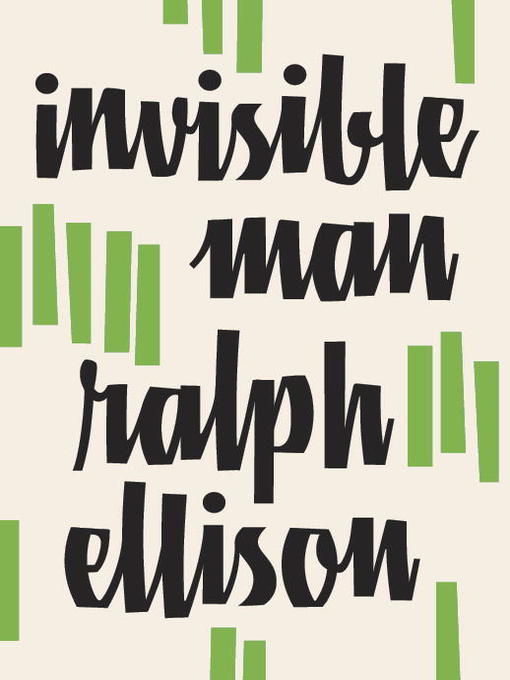 Invisible Man
by
Ralph Ellison
Invisible Man is a milestone in American literature, a book that has continued to engage readers since its appearance in 1952. A first novel by an unknown writer, it remained on the bestseller list for sixteen weeks, won the National Book Award for fiction, and established Ralph Ellison as one of the key writers of the century. The nameless narrator of the novel describes growing up in a black community in the South, attending a Negro college from which he is expelled, moving to New York and becoming the chief spokesman of the Harlem branch of "the Brotherhood", and retreating amid violence and confusion to the basement lair of the Invisible Man he imagines himself to be.
Invisible Man
by
Ralph Ellison
Invisible Man is a milestone in American literature, a book that has continued to engage readers since its appearance in 1952. A first novel by an unknown writer, it remained on the bestseller list for sixteen weeks, won the National Book Award for fiction, and established Ralph Ellison as one of the key writers of the century. The nameless narrator of the novel describes growing up in a black community in the South, attending a Negro college from which he is expelled, moving to New York and becoming the chief spokesman of the Harlem branch of "the Brotherhood", and retreating amid violence and confusion to the basement lair of the Invisible Man he imagines himself to be.
-
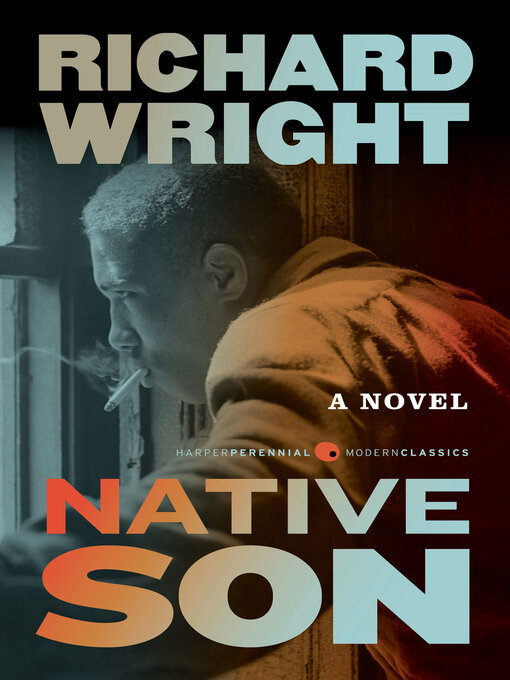 Native Son
by
Richard Wright
Right from the start, Bigger Thomas had been headed for jail. It could have been for assault or petty larceny; by chance, it was for murder and rape. Native Son tells the story of this young black man caught in a downward spiral after he kills a young white woman in a brief moment of panic. Set in Chicago in the 1930s, Wright's powerful novel is an unsparing reflection on the poverty and feelings of hopelessness experienced by people in inner cities across the country and of what it means to be black in America.
Native Son
by
Richard Wright
Right from the start, Bigger Thomas had been headed for jail. It could have been for assault or petty larceny; by chance, it was for murder and rape. Native Son tells the story of this young black man caught in a downward spiral after he kills a young white woman in a brief moment of panic. Set in Chicago in the 1930s, Wright's powerful novel is an unsparing reflection on the poverty and feelings of hopelessness experienced by people in inner cities across the country and of what it means to be black in America.
-
 Beloved
by
Toni Morrison
Staring unflinchingly into the abyss of slavery, this spellbinding novel transforms history into a story as powerful as Exodus and as intimate as a lullaby. Sethe, its protagonist, was born a slave and escaped to Ohio, but eighteen years later she is still not free. She has too many memories of Sweet Home, the beautiful farm where so many hideous things happened. And Sethe's new home is haunted by the ghost of her baby, who died nameless and whose tombstone is engraved with a single word: Beloved.
Beloved
by
Toni Morrison
Staring unflinchingly into the abyss of slavery, this spellbinding novel transforms history into a story as powerful as Exodus and as intimate as a lullaby. Sethe, its protagonist, was born a slave and escaped to Ohio, but eighteen years later she is still not free. She has too many memories of Sweet Home, the beautiful farm where so many hideous things happened. And Sethe's new home is haunted by the ghost of her baby, who died nameless and whose tombstone is engraved with a single word: Beloved.
-
 The Bluest Eye
by
Toni Morrison
Pecola Breedlove, a young black girl, prays every day for beauty. Mocked by other children for the dark skin, curly hair, and brown eyes that set her apart, she yearns for normalcy, for the blond hair and blue eyes that she believes will allow her to finally fit in.Yet as her dream grows more fervent, her life slowly starts to disintegrate in the face of adversity and strife. A powerful examination of our obsession with beauty and conformity, Toni Morrison's virtuosic first novel asks powerful questions about race, class, and gender with the subtlety and grace that have always characterized her writing.
The Bluest Eye
by
Toni Morrison
Pecola Breedlove, a young black girl, prays every day for beauty. Mocked by other children for the dark skin, curly hair, and brown eyes that set her apart, she yearns for normalcy, for the blond hair and blue eyes that she believes will allow her to finally fit in.Yet as her dream grows more fervent, her life slowly starts to disintegrate in the face of adversity and strife. A powerful examination of our obsession with beauty and conformity, Toni Morrison's virtuosic first novel asks powerful questions about race, class, and gender with the subtlety and grace that have always characterized her writing.
-
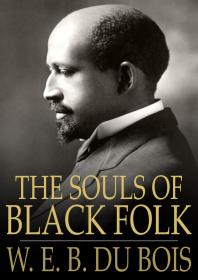 The Souls of Black Folk
by
W. E. B. Du Bois
The Souls of Black Folk is the seminal work by Du Bois on race in late 19th-century North America. The way we think about and examine race today stems from his ideas. He spoke of the "double-consciousness, this sense of always looking at one's self through the eyes of others," and of the progress and obstacles to progress of the black American.
The Souls of Black Folk
by
W. E. B. Du Bois
The Souls of Black Folk is the seminal work by Du Bois on race in late 19th-century North America. The way we think about and examine race today stems from his ideas. He spoke of the "double-consciousness, this sense of always looking at one's self through the eyes of others," and of the progress and obstacles to progress of the black American.
-
 Their Eyes Were Watching God
by
Zora Neale Hurston
"A deeply soulful novel that comprehends love and cruelty, and separates the big people from the small of heart, without ever losing sympathy for those unfortunates who don't know how to live properly." --Zadie Smith One of the most important and enduring books of the twentieth century, Their Eyes Were Watching God brings to life a Southern love story with the wit and pathos found only in the writing of Zora Neale Hurston. Out of print for almost thirty years--due largely to initial audiences' rejection of its strong black female protagonist--Hurston's classic has since its 1978 reissue become perhaps the most widely read and highly acclaimed novel in the canon of African-American literature.
Their Eyes Were Watching God
by
Zora Neale Hurston
"A deeply soulful novel that comprehends love and cruelty, and separates the big people from the small of heart, without ever losing sympathy for those unfortunates who don't know how to live properly." --Zadie Smith One of the most important and enduring books of the twentieth century, Their Eyes Were Watching God brings to life a Southern love story with the wit and pathos found only in the writing of Zora Neale Hurston. Out of print for almost thirty years--due largely to initial audiences' rejection of its strong black female protagonist--Hurston's classic has since its 1978 reissue become perhaps the most widely read and highly acclaimed novel in the canon of African-American literature.
-
 Zora Neale Hurston : Collected Plays
by
Zora Neale Hurston
Though she died penniless and forgotten, Zora Neale Hurston is now recognized as a major figure in African American literature. Best known for her 1937 novel Their Eyes Were Watching God, she also published numerous short stories and essays, three other novels, and two books on black folklore. Even avid readers of Hurston's prose, however, may be surprised to know that she was also a serious and ambitious playwright throughout her career. Although several of her plays were produced during her lifetime--and some to public acclaim--they have languished in obscurity for years. Even now, most critics and historians gloss over these texts, treating them as supplementary material for understanding her novels. Yet, Hurston's dramatic works stand on their own merits and independently of her fiction. Now, eleven of these forgotten dramatic writings are being published together for the first time in this carefully edited and annotated volume. Filled with lively characters, vibrant images of rural and city life, biblical and folk tales, voodoo, and, most importantly, the blues, readers will discover a "real Negro theater" that embraces all the richness of black life.
Zora Neale Hurston : Collected Plays
by
Zora Neale Hurston
Though she died penniless and forgotten, Zora Neale Hurston is now recognized as a major figure in African American literature. Best known for her 1937 novel Their Eyes Were Watching God, she also published numerous short stories and essays, three other novels, and two books on black folklore. Even avid readers of Hurston's prose, however, may be surprised to know that she was also a serious and ambitious playwright throughout her career. Although several of her plays were produced during her lifetime--and some to public acclaim--they have languished in obscurity for years. Even now, most critics and historians gloss over these texts, treating them as supplementary material for understanding her novels. Yet, Hurston's dramatic works stand on their own merits and independently of her fiction. Now, eleven of these forgotten dramatic writings are being published together for the first time in this carefully edited and annotated volume. Filled with lively characters, vibrant images of rural and city life, biblical and folk tales, voodoo, and, most importantly, the blues, readers will discover a "real Negro theater" that embraces all the richness of black life.
 Go to A-Z Databases: Books & eBooks to search for more eBooks. Must be on campus or login with your COM account for off campus access.
Go to A-Z Databases: Books & eBooks to search for more eBooks. Must be on campus or login with your COM account for off campus access.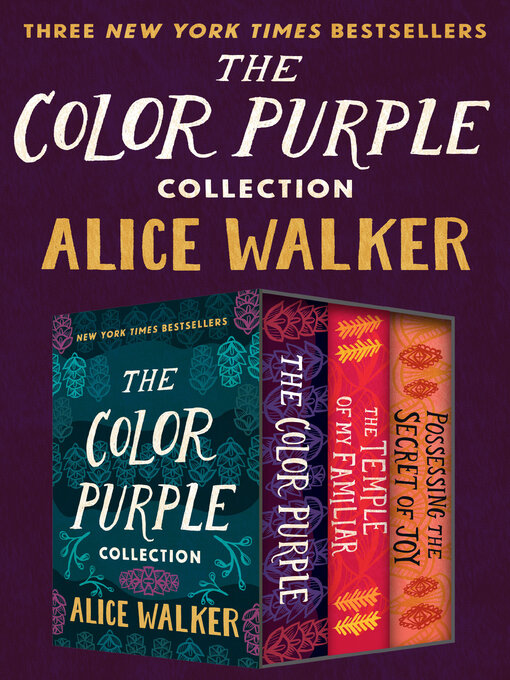 The Color Purple Collection
by
Alice Walker
Three powerful novels by bestselling author Alice Walker—beginning with her Pulitzer Prize–winning The Color Purple—that speak to the African experience in America.
The Color Purple Collection
by
Alice Walker
Three powerful novels by bestselling author Alice Walker—beginning with her Pulitzer Prize–winning The Color Purple—that speak to the African experience in America.
 Up from Slavery
by
Booker T. Washington
Delve into the turbulent roots of race relations in the United States with this inspirational account from Booker T. Washington, a one-time slave who became an important advocate for African-American education and founded several well-known institutions of higher learning, including the Tuskegee Institute in Alabama. Up From Slavery details Washington's life and outlines his sometimes-controversial views on education, social justice, and racial equality.
Up from Slavery
by
Booker T. Washington
Delve into the turbulent roots of race relations in the United States with this inspirational account from Booker T. Washington, a one-time slave who became an important advocate for African-American education and founded several well-known institutions of higher learning, including the Tuskegee Institute in Alabama. Up From Slavery details Washington's life and outlines his sometimes-controversial views on education, social justice, and racial equality.
 My Bondage and My Freedom
by
Frederick Douglass
The second in the series of three autobiographies penned by Frederick Douglass, My Bondage and My Freedom picks up where Narrative of the Life of Frederick Douglass left off. This volume recounts more gripping details of Douglass' transformation from illiterate slave to leading light of the abolitionist movement and offers an extended philosophical meditation on the meaning of slavery.
My Bondage and My Freedom
by
Frederick Douglass
The second in the series of three autobiographies penned by Frederick Douglass, My Bondage and My Freedom picks up where Narrative of the Life of Frederick Douglass left off. This volume recounts more gripping details of Douglass' transformation from illiterate slave to leading light of the abolitionist movement and offers an extended philosophical meditation on the meaning of slavery.
 Go Tell It on the Mountain
by
James Baldwin
"Mountain," Baldwin said, "is the book I had to write if I was ever going to write anything else." Go Tell It On The Mountain, first published in 1953, is Baldwin's first major work, a novel that has established itself as an American classic. With lyrical precision, psychological directness, resonating symbolic power, and a rage that is at once unrelenting and compassionate, Baldwin chronicles a fourteen-year-old boy's discovery of the terms of his identity as the stepson of the minister of a storefront Pentecostal church in Harlem one Saturday in March of 1935.
Go Tell It on the Mountain
by
James Baldwin
"Mountain," Baldwin said, "is the book I had to write if I was ever going to write anything else." Go Tell It On The Mountain, first published in 1953, is Baldwin's first major work, a novel that has established itself as an American classic. With lyrical precision, psychological directness, resonating symbolic power, and a rage that is at once unrelenting and compassionate, Baldwin chronicles a fourteen-year-old boy's discovery of the terms of his identity as the stepson of the minister of a storefront Pentecostal church in Harlem one Saturday in March of 1935.
 The Autobiography of an Ex-Colored Man
by
James Weldon Johnson
James Weldon Johnson's The Autobiography of an Ex-Colored Man is the fictional account of the life of a young American man in the late nineteenth and early twentieth century. With his bi-racial heritage, the Ex-Colored Man is faced with the choice of embracing his black culture and its ragtime music, or passing as a white man and living a mediocre middle-class existence. While not actually an autobiography, Johnson based the book on his own life and the lives of people he knew.
The Autobiography of an Ex-Colored Man
by
James Weldon Johnson
James Weldon Johnson's The Autobiography of an Ex-Colored Man is the fictional account of the life of a young American man in the late nineteenth and early twentieth century. With his bi-racial heritage, the Ex-Colored Man is faced with the choice of embracing his black culture and its ragtime music, or passing as a white man and living a mediocre middle-class existence. While not actually an autobiography, Johnson based the book on his own life and the lives of people he knew.
 I Know Why the Caged Bird Sings
by
Maya Angelou
Here is a book as joyous and painful, as mysterious and memorable, as childhood itself. I Know Why the Caged Bird Sings captures the longing of lonely children, the brute insult of bigotry, and the wonder of words that can make the world right. Maya Angelou's debut memoir is a modern American classic beloved worldwide.
I Know Why the Caged Bird Sings
by
Maya Angelou
Here is a book as joyous and painful, as mysterious and memorable, as childhood itself. I Know Why the Caged Bird Sings captures the longing of lonely children, the brute insult of bigotry, and the wonder of words that can make the world right. Maya Angelou's debut memoir is a modern American classic beloved worldwide.
 Invisible Man
by
Ralph Ellison
Invisible Man is a milestone in American literature, a book that has continued to engage readers since its appearance in 1952. A first novel by an unknown writer, it remained on the bestseller list for sixteen weeks, won the National Book Award for fiction, and established Ralph Ellison as one of the key writers of the century. The nameless narrator of the novel describes growing up in a black community in the South, attending a Negro college from which he is expelled, moving to New York and becoming the chief spokesman of the Harlem branch of "the Brotherhood", and retreating amid violence and confusion to the basement lair of the Invisible Man he imagines himself to be.
Invisible Man
by
Ralph Ellison
Invisible Man is a milestone in American literature, a book that has continued to engage readers since its appearance in 1952. A first novel by an unknown writer, it remained on the bestseller list for sixteen weeks, won the National Book Award for fiction, and established Ralph Ellison as one of the key writers of the century. The nameless narrator of the novel describes growing up in a black community in the South, attending a Negro college from which he is expelled, moving to New York and becoming the chief spokesman of the Harlem branch of "the Brotherhood", and retreating amid violence and confusion to the basement lair of the Invisible Man he imagines himself to be.
 Native Son
by
Richard Wright
Right from the start, Bigger Thomas had been headed for jail. It could have been for assault or petty larceny; by chance, it was for murder and rape. Native Son tells the story of this young black man caught in a downward spiral after he kills a young white woman in a brief moment of panic. Set in Chicago in the 1930s, Wright's powerful novel is an unsparing reflection on the poverty and feelings of hopelessness experienced by people in inner cities across the country and of what it means to be black in America.
Native Son
by
Richard Wright
Right from the start, Bigger Thomas had been headed for jail. It could have been for assault or petty larceny; by chance, it was for murder and rape. Native Son tells the story of this young black man caught in a downward spiral after he kills a young white woman in a brief moment of panic. Set in Chicago in the 1930s, Wright's powerful novel is an unsparing reflection on the poverty and feelings of hopelessness experienced by people in inner cities across the country and of what it means to be black in America.
 The Souls of Black Folk
by
W. E. B. Du Bois
The Souls of Black Folk is the seminal work by Du Bois on race in late 19th-century North America. The way we think about and examine race today stems from his ideas. He spoke of the "double-consciousness, this sense of always looking at one's self through the eyes of others," and of the progress and obstacles to progress of the black American.
The Souls of Black Folk
by
W. E. B. Du Bois
The Souls of Black Folk is the seminal work by Du Bois on race in late 19th-century North America. The way we think about and examine race today stems from his ideas. He spoke of the "double-consciousness, this sense of always looking at one's self through the eyes of others," and of the progress and obstacles to progress of the black American.
![]()